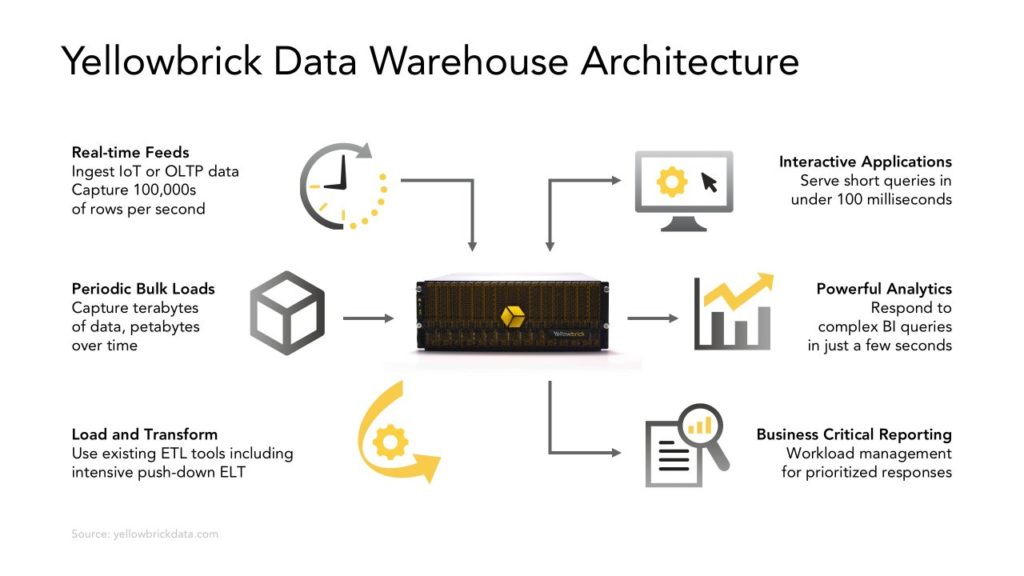Startup Yellowbrick Data has secured $81 million in Series C funding to help speed adoption of its high-performance data warehouse appliance.
Yellowbrick came out of stealth mode in July last year with $44m in Series A funding, and followed up with $48m Series B financing in October. The latest round brings total financing to $173m, led by DFJ Growth with Menlo Ventures, Google Ventures, and new investors IVP and BMW i Ventures.
The company describes the Yellowbrick Data Warehouse as a turnkey appliance for data warehousing and running analytics on that data. It is based on a custom hardware-software combo that is purportedly up to 140 times faster than rivals.

It achieves this performance partly through a technique that Yellowbrick calls native flash queries. Briefly, the data being processed is streamed directly from SSD and into the CPU cache, bypassing main memory entirely in order to take advantage of the massive bandwidth that the flash storage subsystem offers.
Each Data Warehouse is a rack-mount enclosure with a number of compute blade nodes plus two manager nodes, with connectivity via 2x 10GbE or 2x 40GbE network ports per manager node. The Yellowbrick Data Warehouse 2300 Series, introduced in February 2019, can be configured with up to 30 compute nodes and can store up to 2.4 petabytes of customer data.

Co-founder and chief executive Neil Carson claimed in a statement today that Yellowbrick Data is the fastest SQL analytics platform on the market, combining speed, flexibility, and security with predictable costs.
“This mix is driving growth for our company, and success for our expanding set of new and existing global customers,” he said.
One Yellowbrick customer is behaviour-based fraud detection firm ThreatMetrix. CTO Matthias Baumhof said in a statement today that Yellowbrick Data came out tops when his company tested it against rival data warehouses and Hadoop-based solutions.
“Our user queries are completely ad hoc and the Yellowbrick workload management capabilities allowed us to guarantee interactive response times for our portal users, even under high concurrency,” he said.








